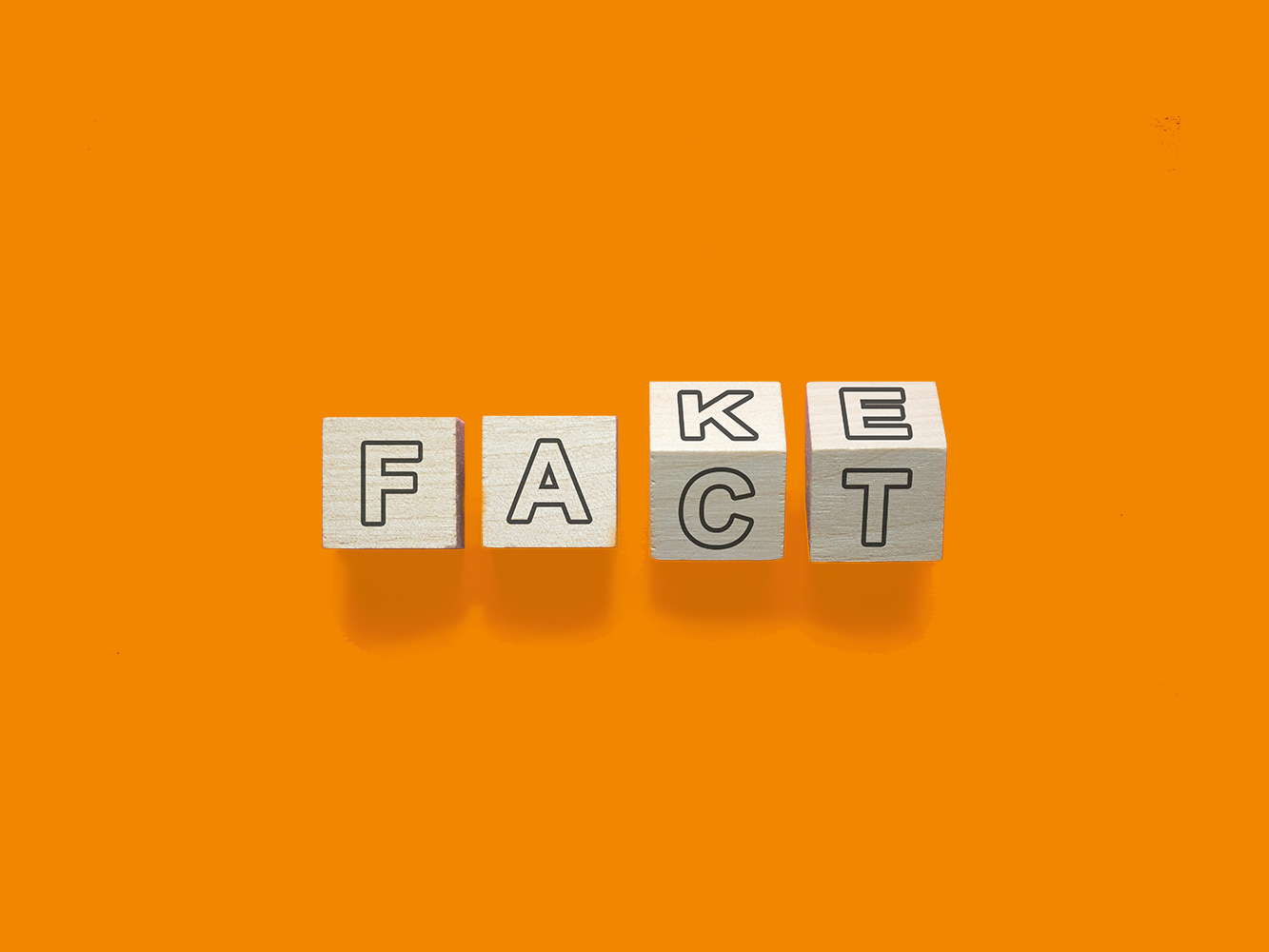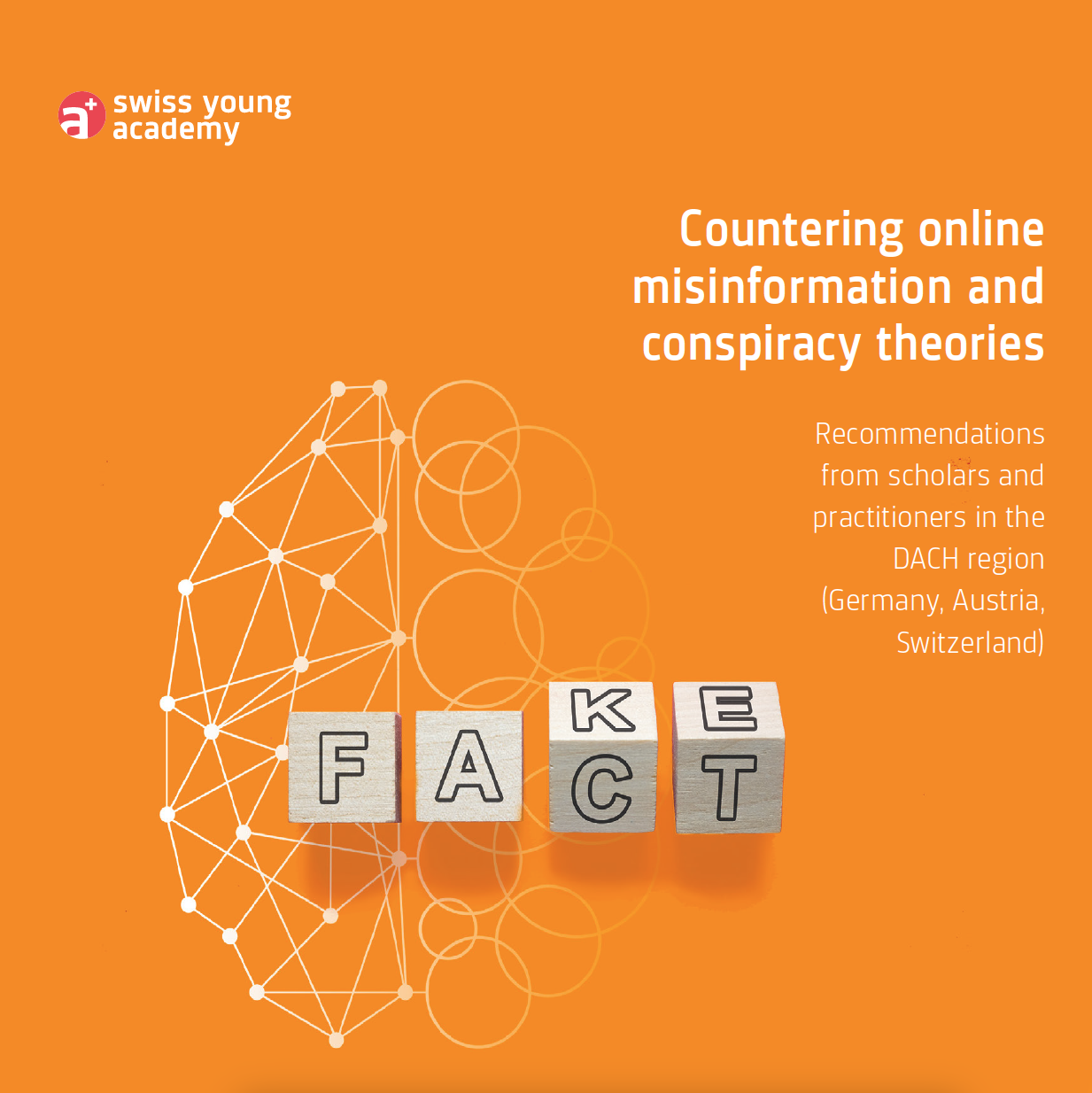Réseautage dans le secteur scientifique.
What can we learn from COVID-19 fake news about the spread of scientific misinformation in general?
The project's objectives were multifaceted and aimed at delving into several important areas. First, it focused on exploring the nature of misinformation prevalent among the Swiss population, tracing its origins, and understanding its classification. Additionally, the project aimed to uncover valuable insights gained by involving diverse stakeholders in the analysis and interpretation of survey data. Another key objective was to enhance our understanding of the dissemination of scientific misinformation more broadly. Moreover, the project sought to address current critical challenges associated with online misinformation and conspiracy theories. This involved identifying potential future problematic trends and developing effective strategies to mitigate the impact of conspiracy theories and misinformation in the digital realm. For its analytical approach, the project utilized a blend of traditional methods, encompassing both quantitative and qualitative survey analysis and a Delphi study. It also incorporated innovative "citizen science" methodologies, which included co-creation workshops, to enrich the research process and outcomes.

Background
Misinformation and conspiracy theories have experienced a significant surge during the COVID-19 pandemic, but their influence extends far beyond this crisis. These phenomena are prevalent in various global events and debates, including the Russian invasion of Ukraine, the "Gilets jaunes" movement in France, the UK's referendum to leave the European Union (“Brexit”), the political landscape shaped by Donald Trump, and the rise of emerging populist movements. The proliferation and belief in such misinformation and conspiracy theories can have far-reaching and adverse effects. They impact individuals, communities, and societies at large, undermining public health, eroding trust in science, weakening support for authorities and democratic systems, and fracturing social cohesion.
Therefore, it is of paramount importance to thoroughly analyze and address the issue of online misinformation. Understanding its dynamics is crucial to develop and implement effective strategies to mitigate its spread, safeguarding the integrity of societal discourse and the well-being of communities worldwide.
Goals
- Research the informedness of the Swiss population, especially what fake news the Swiss population believes in, where they obtained it from, and how it can be typified;
- Go beyond the traditional survey methodology and investigate what we can learn from including different stakeholders in the analysis and interpretation of the survey data;
- Gain insights into the spread of scientific misinformation in general at the example of COVID-19 fake news in Switzerland.
Activities
Publications
Kessler, S. H., Cano Pardo, M. S., Jobin, A., & Georgi, F. (2022). How Informed are the Swiss about Covid-19 and Prevention Measures? Results of a Survey on Information Awareness, Behaviour, and Deficits. European Journal of Health Communication, 3(3), 118-142. DOI: 10.47368/ejhc.2022.306
Kessler, S. H., Jobin, A., Grüninger, S., & Georgi, F. (2021), Was können wir aus Covid-19 Fake News über die Verbreitung von Fehlinformationen im Allgemeinen lernen? Ein Projekt der Swiss Young Academy. [What can we learn from Covid-19 fake news about the spread of misinformation in general? A project of the Swiss Young Academy.] Swiss Academies Communications, 16(5), 68-75. (more Information here)
Kessler, S. H., Cano Pardo, M., & Grüninger, S. (2022). Statistiken schlüssig schildern: Was grafische Statistiken verständlich und vertrauenswürdig macht [Presenting statistics coherently: What makes graphical statistics understandable and trustworthy]. In Europäisches Journalismus-Observatorium (EJO), Dortmund, March. (more Information here)
Workshops & Panel Discussion
Jobin, A., Georgi, F., Grüninger, S., & Kessler, S. H. (2021). Workshop: COVID-19-Fehlinformationen: Co-Creation-Analyse einer schweizweiten Befragung [Workshop: COVID-19 Misinformation: Co-Creation Analysis of a Switzerland-wide Survey]. ScienceComm’21 in Fribourg (Switzerland), 15.-16. September.
Prix Média & Newcomer Award Ceremony and Podium Discussion "Fake News and Conspiracy Theories - Learnings for the Future" on September 29, 2022: Together with the Prix Media and Prix Media Newcomer team, we organized a panel discussion and fact-checking workshop in Zurich at Karl der Grosse. The topic of the panel discussion was: "Fake News and Conspiracy Theories - Learnings for the Future". (more Information here)
Conference Presentations
Kessler, S. H., Jobin, A. & Georgi, F. (2022). Informedness, Information Behaviours and Information Deficits Related to COVID-19 and Prevention Measures in Switzerland. Paper accepted at the European communication conference of the European Communication Research and Education Association (ECREA) in Aarhus (Denmark), 19.-22. October.
Kessler, S. H., Jobin, A., & Georgi, F. (2021). An analysis of Swiss people’s subjectively perceived misinformation regarding the novel coronavirus. Paper presented at the European Conference on Health Communication (ECHC), Amsterdam (virtual conference), 4.-5. November.
Mahl, D., Kessler, S. H., Schäfer, M. S., Jobin, A., Zeng, J., & Georgi, F. (2023). Herausforderungen, Trends, Maßnahmen: Eine Delphi-Studie zu Verschwörungstheorien und Fehlinformation in digitalen Medien. [Challenges, trends, measures: A Delphi study on conspiracy theories and misinformation in digital media.] Presentation at the annual conference of the German Communication Association (DGPuK) in Bremen (Germany), 18.-20. May.
Mahl, D., Kessler, S. H., Schäfer, M. S., Jobin, A., Zeng, J., & Georgi, F. (2023). Conspiracy theories and misinformation in digital media: A Delphi study assessing current challenges, problematic developments, and potential countermeasures. Paper accepted at the Annual Conference of the International Communication Association (ICA) in Toronto (Canada), 25.-29. May.
Final Project Handout
Handout “Countering online misinformation and conspiracy theories - Recommendations from scholars and practitioners in the DACH region (Germany, Austria, Switzerland)” published in three languages (Deutsch / Français / English).
Project Speaker
Project Members
Servan Grüninger
Anna Jobin
Fanny Georgi

